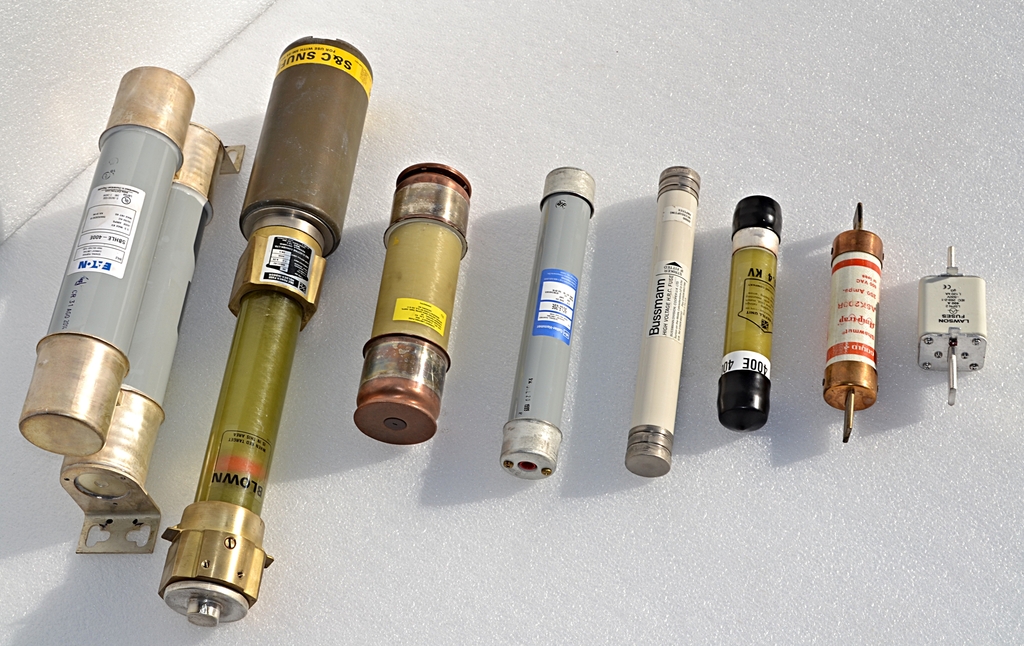Fuses and circuit breakers are overcurrent protection devices used in electrical circuits, which interrupt the circuit when there are conditions such as overcurrent. Wiring regulations often define a maximum fuse current rating for particular circuits.
Overcurrent protection devices are essential in electrical systems to limit threats to human life and property damage.
Fuses:
Fuse is defined as; an overall current protective device with a circuit opening fusible element which opens (break) when there is an overcurrent in the circuit.

The Fuse is a one-time protective device to be replaced after the fault is cleared: It is the simplest and most common type of circuit protective device, used in most house wiring installations. It is available in hundred design ratings and shapes but basically, the same in functions.
Circuit breaker:
The Circuit Breaker is an over-current protective device designed to function as a switch. Basically, a circuit breaker is equipped with an automatic tripping device to protect the branch circuit from overload and ground fault. The circuit breaker can be manually tripped, so that, in many cases, it also acts as circuit switch.

Unlike a fuse, which operates once and then has to be replaced, a circuit breaker can be reset (either manually or automatically) to resume normal operation.
Circuit breakers are made in varying sizes, from small devices that protect an individual household appliance up to large switchgear designed to protect high voltage circuits feeding an entire city.
Advantages of Circuit breaker over Fuse:
- The circuit breaker act as switch aside from its being an overcurrent protective device.
- Unlike the fuse that has to be c.iscarded after it was busted due to an over. current flow, the circuit breaker trips off automatically and after correctmg the fault, it is again readily available for switch on.
- The circuit breaker can be multiple poled installed with 1,2 or 3 poles which will simultaneously protect and switch one to three lines. The fuse, on the other hand, is a single pole, installed on a single wire that could only protect a single electrical line.
- The circuit breaker position is easier to detect. It could be closed, tripped, or open right at the handle. On the
contrary, the busted fuse could not be detected easily because the melted fusible element is inside the fuse casing. - The circuit breaker can be manually tripped. so that in many cases, it also. acts as the circuit switch.
Advantages of the Fuse over the Circuit Breaker:
- One major advantage of the fuse over the circuit breaker is its reliability and stability. The fuse· can stay in its position for years and act when called on to act as designed.
- The cost of the fuse is very much lower compared to that of the circuit breaker.
- Circuit breakers have Several moving parts which requires maintenance and periodic testing to be in good condition at all time.





